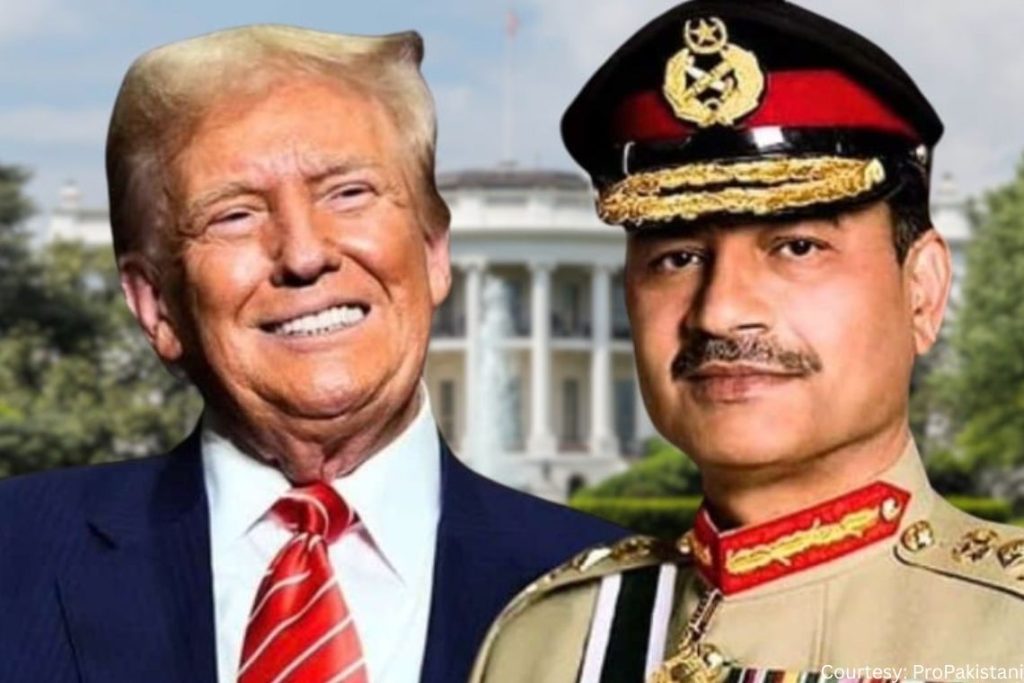WASHINGTON – June 20, 2025 — In a rare and strategically significant move, Pakistan’s Chief of Army Staff Field Marshal Asim Munir was hosted for a power lunch by U.S. President Donald Trump at the White House — a meeting that signals deepening military-to-military ties between Islamabad and Washington.
The two-hour closed-door session, held in the Cabinet Room, focused on a wide-ranging agenda, including counterterrorism, regional security, Kashmir tensions, and emerging trade opportunities. The lunch was attended by Pakistan’s National Security Adviser Lt. Gen. (retd) Asim Malik, with no civilian leaders present — a detail that has triggered debate back home and abroad.
Iran, Israel & Regional Balance
Sources confirm that discussions on the Israel–Iran conflict featured prominently. While President Trump sought Pakistan’s input on regional de-escalation, Gen. Munir reaffirmed Islamabad’s diplomatic support for Iran, reflecting Pakistan’s delicate balancing act in Middle Eastern geopolitics.
The Army Chief’s visit comes just days after Pakistan’s Parliament passed a resolution condemning Israeli military action in Iran — a move that was noted in Washington and likely shaped the meeting’s tone.
Trump Credits Pakistan’s Role in Avoiding India Clash
In a rare acknowledgment, President Trump credited Gen. Munir with helping defuse a recent military flare-up between Pakistan and India. According to U.S. sources, Trump praised Munir’s “influential diplomacy” that averted a broader conflict, amid rising tensions along the Line of Control.
This public recognition has not gone unnoticed in New Delhi, where Indian officials are reportedly expressing concerns over renewed U.S.–Pakistan engagement.
Economic & Tech Cooperation on the Table
Beyond security, the meeting touched on economic collaboration, with both sides discussing:
- Cryptocurrency policy frameworks
- Trade in rare earth minerals
- Advancements in artificial intelligence (AI)
- Expansion in defense-industrial cooperation
Gen. Munir also highlighted Pakistan’s Special Investment Facilitation Council (SIFC) — a civil-military platform driving investment and economic reform.
Unusual Optics, Serious Implications
The absence of civilian leadership from such a high-profile diplomatic engagement has sparked questions over civil-military balance in Pakistan’s foreign policy process. Analysts believe this meeting cements the Pakistan Army’s increasing role in diplomacy, economics, and strategic decision-making.
While official statements have remained cautious, the implications are clear: the United States, under Trump’s leadership, appears to be re-engaging Pakistan’s military directly, bypassing traditional diplomatic protocols.
What This Means for Pakistan
- New Openings: Greater space for strategic and tech-based cooperation with Washington.
- New Risks: Rising discomfort in New Delhi and Tehran; pressure on Islamabad to walk the tightrope wisely.
- New Reality: Pakistan’s military leadership is at the forefront of international engagement, not just security affairs.


